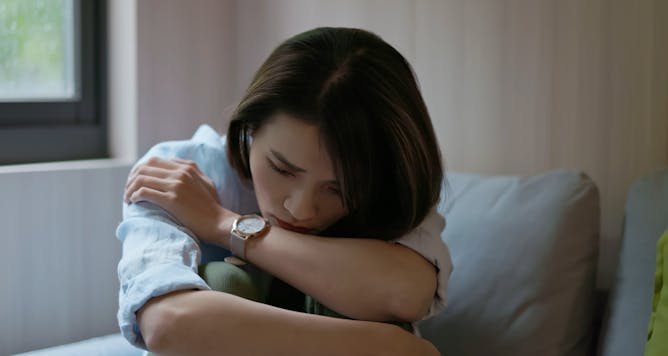|
When you think of a marine heatwave, chances are you’ll think of hot water at the surface and coral bleaching. But on the continental shelf, heatwaves can stretch much further down the water column. And, remarkably, there are ocean heatwaves which only affect the waters at the bottom, as UNSW researchers Amandine Schaeffer, Alex Sen Gupta and Moninya Roughan have found.
Why are we only finding out about these different types of heatwaves now? One reason is the sea makes things tough. Instruments corrode in the salt. Oysters clog up sensors. Our long-term knowledge of what’s happening in deeper waters is limited.
As these experts write, it’s important to fill this gap in our knowledge. Marine heatwaves can be lethal. One which struck the northwest coast of America and Canada in 2021 killed an estimated one billion sea creatures. When your life cycle is built around a very specific temperature range, it doesn’t take much to cause havoc. Sadly, marine heatwaves are only going to intensify as our oceans heat up more and more. And not even the bottom of the sea is safe.
|

|
Doug Hendrie
Deputy Environment + Energy Editor
|
|

Amandine Schaeffer, UNSW Sydney; Alex Sen Gupta, UNSW Sydney; Moninya Roughan, UNSW Sydney
Marine heatwaves aren’t just on the surface. They can be at their most destructive when they sweep along the seafloor.
|

Chih-Ling Liu, Lancaster University
Many young women feel trapped and indebted to their families.
|

Peter Tregear, The University of Melbourne
You’re the Voice reinforces the view that supporting the Voice to Parliament is an act of national reconciliation we can take together.
|

Erika Penney, University of Technology Sydney
When we’re surrounded by distractions, our brains essentially become battlegrounds for attention. Everything competes for our focus.
|

Sarah McLean, Swinburne University of Technology; Enzo Palombo, Swinburne University of Technology
Animals, including the ones that live in our homes, can carry all kinds of illnesses. Most of the time it’s not a problem, but here’s what you should do to avoid getting sick.
|

Lowri Dowthwaite-Walsh, University of Central Lancashire
Women’s wellbeing paradox: unhappier than men but more social, with higher levels of emotional resilience.
|

Gillian Sandra Gould, Southern Cross University; Karen McFadyen, Southern Cross University; Marilyn Clarke, Southern Cross University
Teens who quit vaping or drastically cut back are likely to experience withdrawal symptoms. Here’s how to support young adults through withdrawal and quitting.
|

Alison Ritter, UNSW Sydney; Kari Lancaster, UNSW Sydney; Laura McLauchlan, Macquarie University; Liz Barrett, UNSW Sydney; Matthew Kearnes, UNSW Sydney
Cannabis growers in the capital report many obstacles, from laws banning the purchase of seeds and artificial lights to the lack of information on growing conditions.
|

Richard Colledge, Australian Catholic University
Simone Weil is one of the 20th century’s most remarkable, paradoxical figures. The Need for Roots, published in the year she died at just 34, is a tour de force of ethics and political philosophy.
|
Politics + Society
|
-
Paul Komesaroff, Monash University; Lisa Jackson Pulver, University of Sydney; Paul James, Western Sydney University; Sally May Gardner, Deakin University
Since the Indigenous Voice to Parliament was announced, there has been an increase of hate speech and personal attacks. Hate speech and misinformation can cause physical and mental harm.
-
Louise Grimmer, University of Tasmania
For people who feel lonely, a trip to the supermarket could help – if only the store provided opportunities to chat at the checkout. A Dutch chain has done just that, and customers and staff love it.
-
Adrian Beaumont, The University of Melbourne
The latest Newspoll shows more bad news for the “yes” campaign.
|
|
Science + Technology
|
-
Simon Goldstein, Australian Catholic University; Peter S. Park, Massachusetts Institute of Technology (MIT)
AI systems with deceptive capabilities could be misused in numerous ways by bad actors. Or, they may become prone to behaving in ways their creators never intended.
|
|
Environment + Energy
|
-
Andy Sheppard, CSIRO; Melodie McGeoch, La Trobe University; Philip Hulme, Lincoln University, New Zealand; Phill Cassey, University of Adelaide
Alien invaders are penetrating the borders of every country in the world. Now the full extent of the problems and potential solutions have been exposed, in a new United Nations report.
-
Melissa Haswell, University of Sydney; David Shearman, University of Adelaide; Jacob Hegedus, University of Sydney; Lisa Jackson Pulver, University of Sydney
A new report spans more than 300 peer-reviewed studies to present a comprehensive summary of the risks the industry creates for people’s health and wellbeing, as well as for the planet.
|
|
Books + Ideas
|
-
Vivienne Westbrook, The University of Western Australia
Megalodons are having a cultural moment. What do we know about them? And might further scientific discoveries reveal more about the true shape and size of these creatures?
|
|
Business + Economy
|
-
Ranjana Gupta, Auckland University of Technology
New Zealand needs to follow international precedent and make it expensive for investors to keep properties empty.
|
|
| |
|
|
|
Auckland University of Technology
Auckland, New Zealand
•
Full Time
|

|
|
Auckland University of Technology
Auckland, New Zealand
•
Full Time
|

|
|
|
|
| |
| |

|
| |
| |
| |
Featured Events, Courses & Podcasts
|
View all
|
|
6 July - 6 October 2023
•
|

|
15 - 17 September 2023
•
Sydney
|

|
5 September 2023
•
Clayton
|

|
18 September 2023
•
Melbourne
|

|
|
|
|
| |
| |
| |
| |
| |
|
|